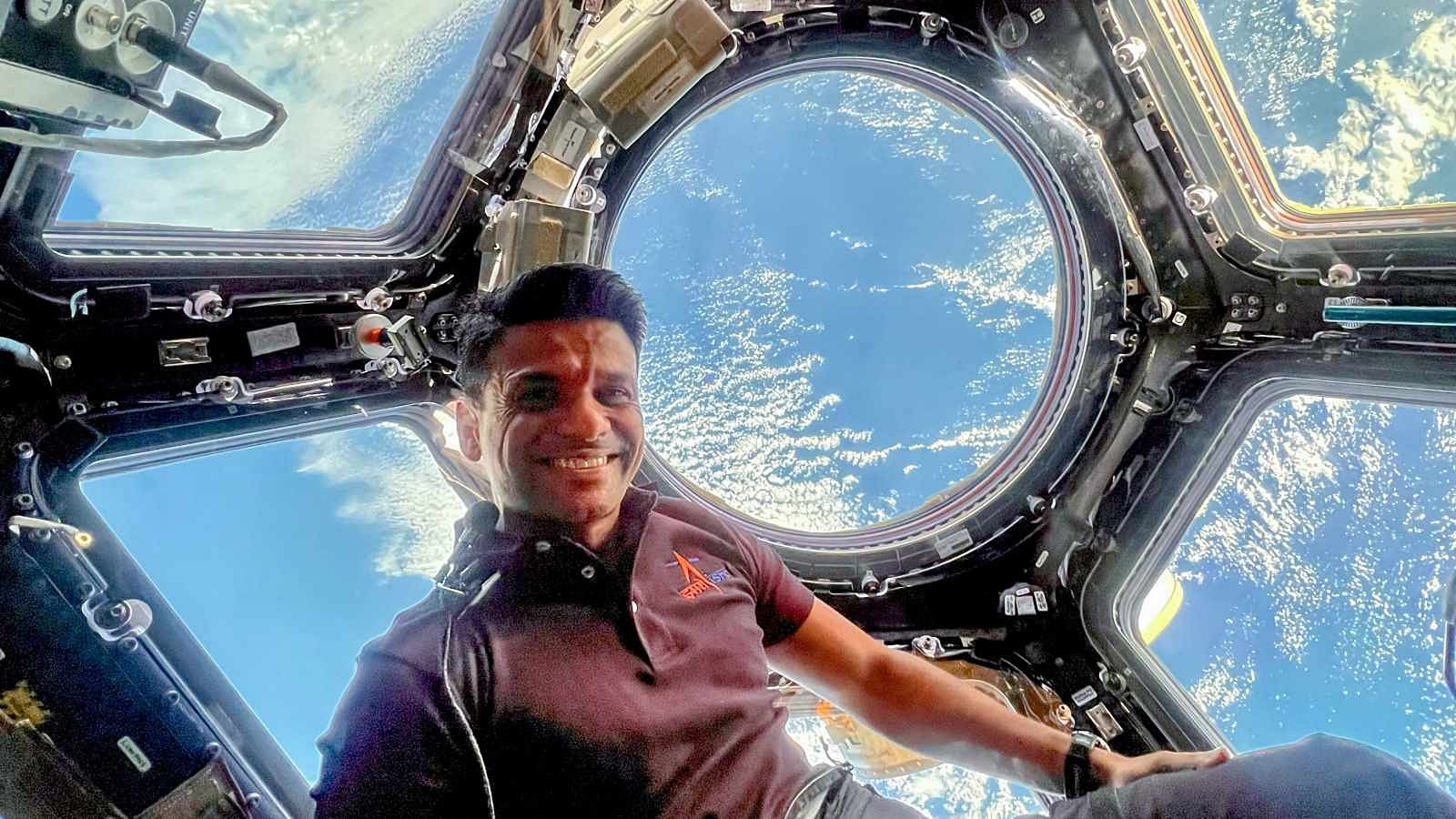Gaganyatri Shubhanshu Shukla Tuesday said that astronauts have to perform daily exercise in order to stay fit and healthy while at the International Space Station (ISS).
In his second and final week at the ISS as part of the ongoing Axiom-4 mission, India’s Group Captain Shukla spoke to students during an interaction via ham radio communication. Lasting under ten minutes starting around 2pm on Tuesday, this was the second radio communication he made back to India. It was facilitated by the Amateur Radio on International Space Station (ARISS) with the call connected via telebridge to the North East Space Application Centre of ISRO.
During the call, he emphasised how physical fitness is key to astronauts while at the ISS and that the orbiting observatory offers a mini gym for the astronauts.
Story continues below this ad
“Believe it or not, there is a treadmill, a cycle and also a strength training machine known as the Advanced Resistive Exercise Device (ARED). Every day, astronauts have to exercise in order to maintain their health and fitness. Staying healthy and fit in microgravity conditions is very important,” he replied to the question on fitness.
Shukla shared that his body, too, faced space sickness soon after reaching the ISS last week.
“On earth, we have gravity acting on us but it is not the same in space. The body does go through some changes (when in a space environment) but it adapted quickly. Anyways, in case somebody feels unwell at the ISS then there are medications available to deal with space sickness,” he said.
Earlier this week, his smiling photographs emerged from the cupola or the Earth-viewing vantage point and the Indian Air Force’s (IAF) test pilot reiterated that looking back at the earth was beautiful and that it was an amazing experience.
Story continues below this ad
On the ongoing science experiments designed by the ISRO, Shukla said that some data cleaning was performed. He elaborated further, “Many factors affect the biological processes at the ISS but it is particularly affected by the unique environmental conditions — microgravity and the enhanced radiations. Whereas on Earth, its magnetic field and the layer of atmosphere protect it.”
He credited the extensive and intense training during the past several months, and his training as test pilot by the IAF, have helped him during the ongoing mission onboard the ISS. He mentioned in detail how the training focused on facing abnormal conditions and emergencies on ISS.
“Facing an emergency at ISS cannot be ruled out. For, the maximum time duration of our on-ground training extensively focused on all possible scenarios that can go wrong onboard the ISS. We are well versed and trained to handle any emergency on the ISS,” he said.
Another doubt that the students quizzed Shukla was the time zone being followed onboard the ISS.
Story continues below this ad
“We do see the sun rise and sun sets but our daily activities are not guided by the sunlight but by time. We follow the Greenwich Mean Time (GMT),” he noted.
Encouraging young students to pursue science and that he will be available to guide the next generation of Gaganyatris, Shukla said, “I will be back with you guys soon and will guide you all. Many kids from small and big towns are going to become astronauts.”
Ending the conversation on a positive and motivational note, Group Captain Shukla said, “When you kids grow up, who knows, you may be the first one to be put on the moon.”
On July 4, Shukla had made the maiden communication via ham radio during which he interacted with students tuned-in from Thiruvananthapuram and Lucknow.

